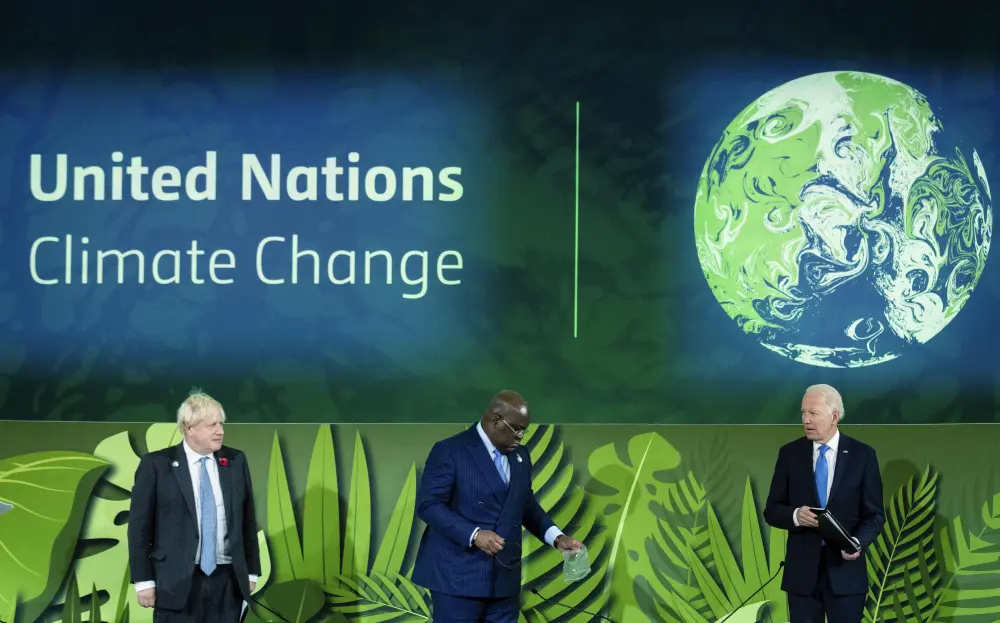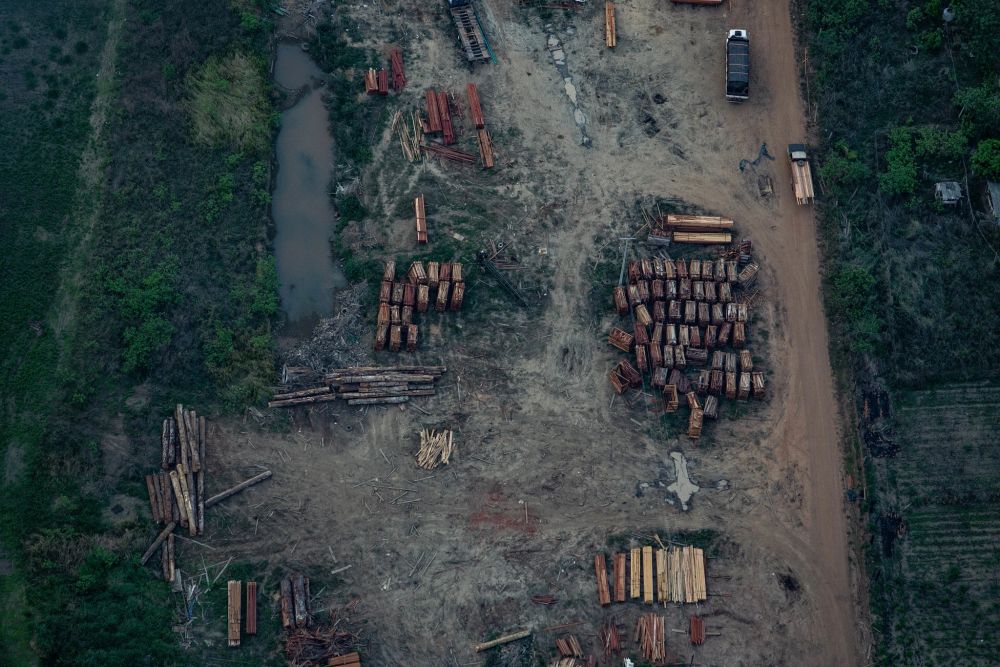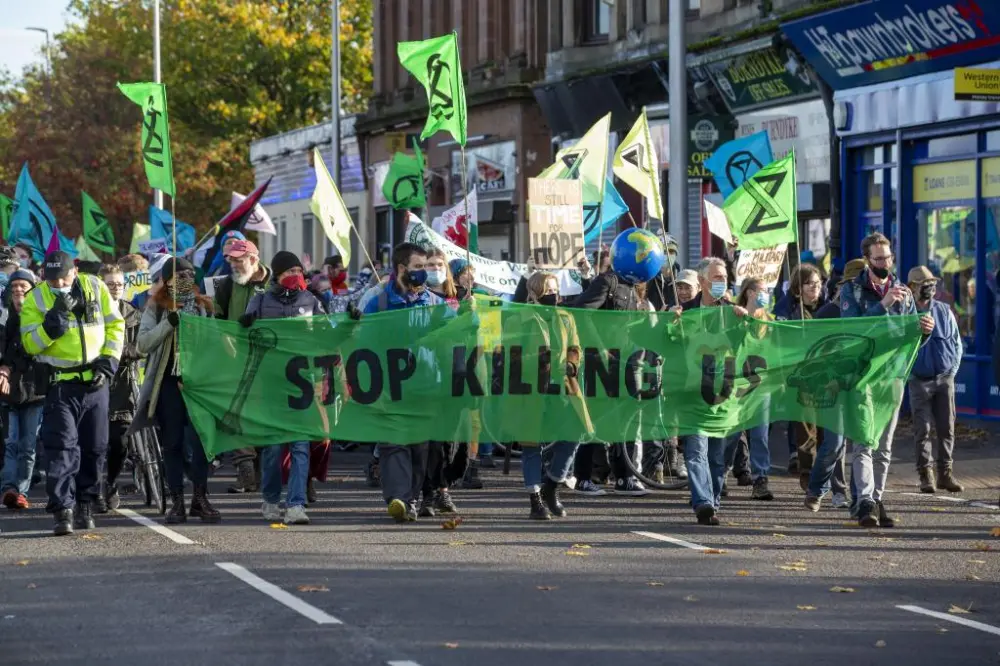COP26: Six Key Inferences From First Week of UN Climate Summit
With one week down at the crucial climate conference, all eyes are now set to see how this summit will conclude and will it actually help the planet or not
The world seems to be grasping the truth that comes along with the harsh reality of climate change, which has escalated the urge to halt the phenomenon before it destroys the planet and all of us with it. COP26 climate conference has offered a center stage where the world leaders seem to be at least talking the talk. With only a few important points worth paying attention to, the first week of COP26 was not as successful as was hoped.
The first week generated a flurry of multiple announcements, deals, pacts and agreements, most notably on finance, forests and emissions. Some of the set targets look promising on the outside but pose great challenging on the way ahead. Once the talk are done, only time will tell if the global leaders will walk the walk.
Important Points from COP26 First Week
With only a few days left to make some huge decisions regarding the global climate change and how to adapt and mitigate this threat and a disappointing first week, the second week of COP26 has become much more crucial. The summit has reached its halftime and here are the six important points from the first week of COP26 climate conference.

Image: AP
Climate Finance to Meet Targets
The topic of climate finance is a prickly one and as the developed nations have failed to keep up their end of delivering $100 billion that was promised in 2009 to aid the developing countries, the issue has become even more so. However, hundreds of the world’s biggest banks and pension funds have committed to the Glasgow Financial Alliance for Net-Zero.
Another accord accounted for over 20 countries and financial institutions vowing to stop all funding for fossil fuel development overseas and investing about 48 billion a year in green energy. Signatories to this accord include the US and UK, along with some developing nations such as Costa Rica.
Deforestation Elimination by 2030
Global leaders from over 100 countries have signed up to a Leaders’ Declaration on ending deforestation by 2030 at the summit. An amount of $19 billion is set to be devoted to achieving the target, which includes $1.7 billion for indigenous people. The signatories include Brazil, Indonesia and the Democratic Republic of Congo, which combined have 85 percent of the world’s forests and are targets for illegal logging and mining. The US and China also signed up for the goal.

Image: Victor Moriyama/The New York Times
India’s Ambitious Target
Many have applauded India’s bold move to pledge a target for net-zero emissions by 2070, which many labeled disappointing as the country missed the global target to achieve the same by 2050. Prime Minister Narendra Modi said that India will thrive to meet half of its energy consumption with renewable resources by 2030 while calling on developed nations to make a $1 trillion contribution as climate finance. With exploding population and technology constraints, how much of these targets the country will achieve, only time can tell.
US to Lead Climate Action
US President Joe Biden has assured the world during the COP26 that the US will once again lead the climate action. He reasserted Washington’s climate credibility while apologizing for his predecessor Donald Trump’s hostility toward climate science and for pulling the country out of the Paris Accord. He also signed for the global target to reduce methane emissions by 30 percent by 2030, which has been labeled as one of the easiest ways to fight global warming.
China’s Renewed Goals
While China has been chided for not attending the crucial climate summit, it has also been praised for its strong representation that sets out a roadmap for climate change contribution. The world’s second-largest economy and one of the biggest emitters have set out new goals to fight climate change. President Xi Jingping proposed a goal of peaking carbon emissions this decade and achieving carbon neutrality by 2060, with a focus on concrete actions and increasing green transitions.
Phasing Out of Coal
Coal is one of the most polluting fossil fuels and still it is being used in most countries as the primary energy source. Nearly 40 countries at COP26 have aimed to end reliance on this contaminating greenhouse fuel. The new members include Poland, Vietnam, Chile, Indonesia and South Africa. While their timelines vary from 2030 to 2050 and beyond, the growing number of countries to phase out of coal gives a glimmer of hope. Disappointingly, the biggest emitters such as the US, China, Russia and India have not committed to this target.
Dismal Progress
Where the UN climate summit hasn’t been as successful in its first as it was hoped to be, UN secretary-general Antonio Guterres said that the summit has not been an overall failure. He also indicated that if acted upon, the commitments and initiatives from the first week would help keep the world on track to a maximum of 1.5 Degrees Celsius of global temperature rise.

Image: Down to Earth
On the other hand, climate protestors are not all too happy about the proceedings of the summit, which was labeled as the world’s last best chance against climate change. Thousands of climate protestors have marched on Glasgow, demanding the global leaders use the event to commit to real action, rather than using it as a “PR event.”
The protests conducted in Glasgow and across the globe were a crucial part of the youth action during the first week of COP26. Protestors have been demanding climate action and climate justice. The protestors included different youth groups, indigenous groups, NGOs and people from different countries.
Climate activist Greta Thunberg has criticized the global leaders and slammed COP26 as a “failure.” She said that leaders were “not doing nothing, they are actively creating loopholes and shaping frameworks to benefit themselves and to continue profiting from this destructive system.”
High Hopes from Second Week
The summit is into its second week that is focused on adaptation and climate change’s disproportionate effect on certain countries and communities. It opened with many influential people addressing the conference, including former US President Barack Obama.
Obama criticized Trump’s active hostility toward climate science and his action to revert to previous climate actions. He also chided China and Russia for not attending the conference. Obama also mentioned that most nations have failed to be as ambitious as they should have been on their climate goals.
He applauded young climate activists fighting to preserve the planet. Talking about the Paris Agreement, he said “Paris was a beginning, not an endpoint,” and that the world should thrive to do more than it has planned to halt climate change.
Further proceedings at the summit will likely decide the future of the planet and with an optimistic and sincere approach, we may actually survive the devastating effects of the climate crisis.


